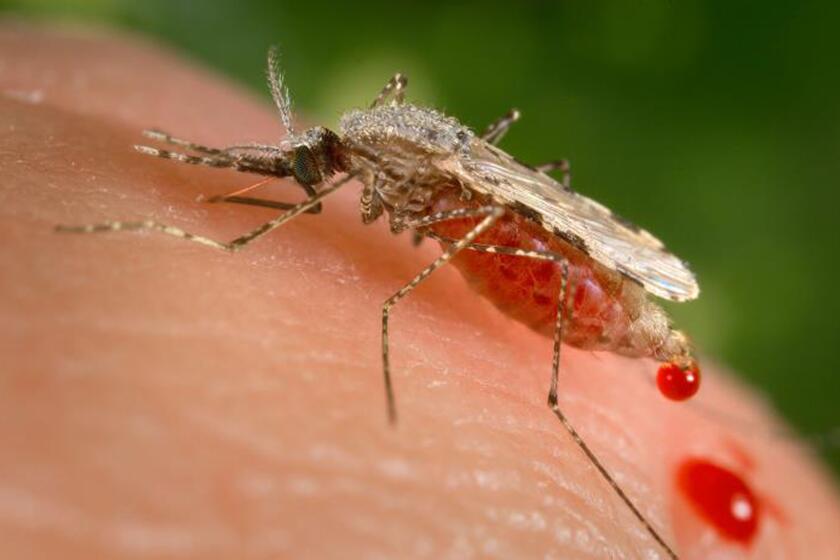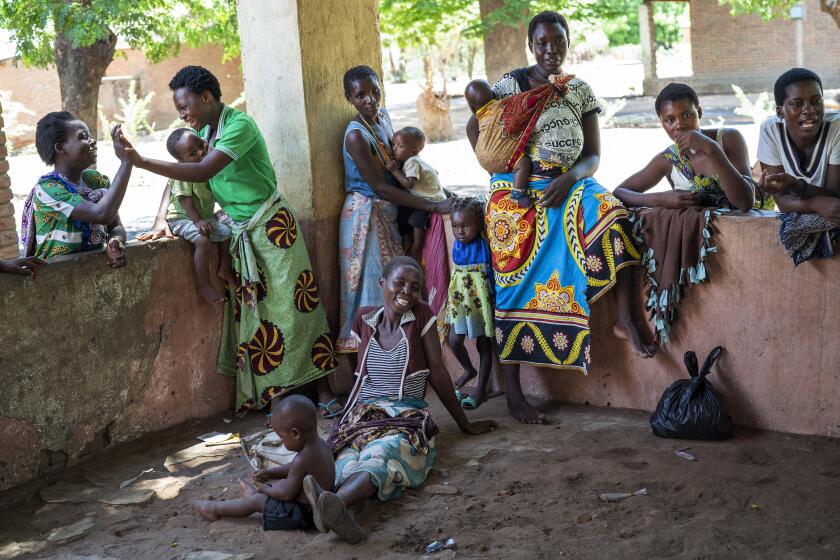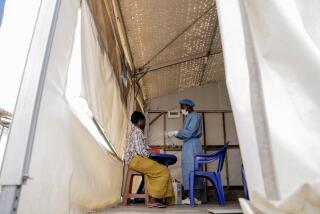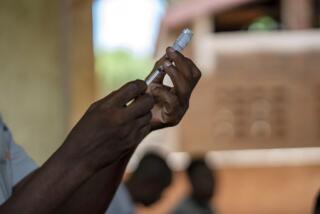Antibody treatment tested as new tool against malaria
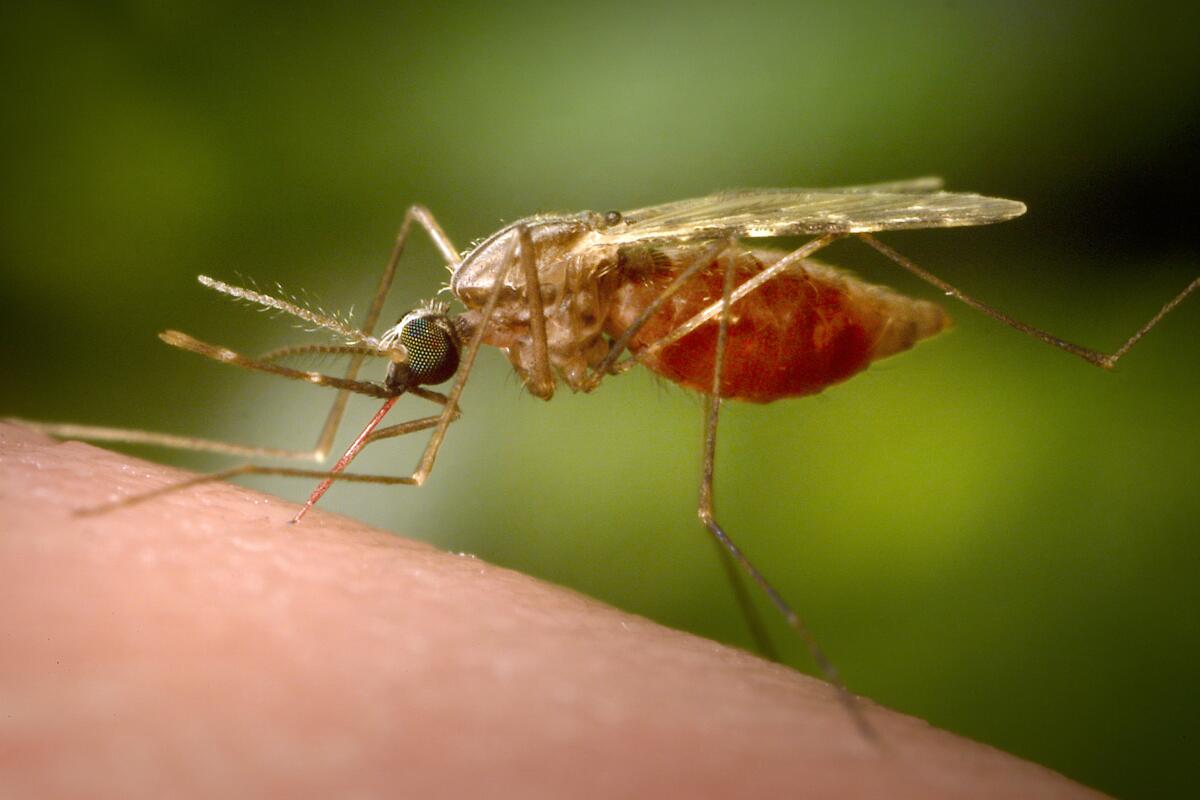
- Share via
Research in Africa found a one-time dose of an experimental drug protected adults against malaria for at least six months, the latest approach in the fight against the mosquito-borne disease.
Malaria killed more than 620,000 people in 2020 and sickened 241 million, mainly children under 5 in Africa. The World Health Organization is rolling out the first authorized malaria vaccine for children, but it is about 30% effective and requires four doses.
The new study tested a very different approach — giving people a big dose of lab-made malaria-fighting antibodies instead of depending on the immune system to make enough of the infection-blockers after vaccination.
“The available vaccine doesn’t protect enough people,” said Dr. Kassoum Kayentao of the University of Sciences, Techniques and Technologies in Bamako, Mali, who helped lead the study in the villages of Kalifabougou and Torodo.
During malaria season, people in those villages are bitten by infected mosquitoes an average of twice a day, other research has shown.
Scientists have found evidence of a drug-resistant form of malaria in Africa.
The experimental antibody, developed by researchers at the U.S. National Institutes of Health, was given intravenously. That would make it difficult to deliver on a large scale. Still, the encouraging findings bode well for an easier-to-administer shot version from the same scientists. The shot is in early testing in infants, children and adults.
The U.S. government research was published Monday in the New England Journal of Medicine and presented at a medical meeting in Seattle.
The antibody works by breaking the life cycle of the parasite, which is spread through mosquito bites. It targets immature parasites before they enter the liver, where they can mature and multiply. The experimental compound was developed from an antibody taken from a volunteer who received a malaria vaccine.
The research involved 330 adults in Mali who got either one of two different antibody doses or a dummy infusion. All were tested for malaria infection every two weeks for 24 weeks. Anyone who got sick was treated.
Blood tests detected infections in 20 people who got the higher dose, 39 people who got the lower dose and 86 who got the placebo.
The higher dose was 88% effective, compared with the placebo. The lower dose was 75% effective.
Malaria kills more than 400,000 people yearly, two-thirds of them under 5. The vaccine aims to help small children through the most vulnerable period.
Protection might last during the several months of a malaria season. The idea is to someday use it alongside other malaria prevention methods such as malaria pills, mosquito nets and vaccines.
Costs are uncertain, but one estimate suggests lab-made antibodies could be given for as little as $5 per child per malaria season.
Lab-made antibodies are used to treat cancer, autoimmune diseases and COVID-19, said Dr. Johanna Daily of Albert Einstein College of Medicine in New York, who was not involved in the study.
“The good news is now we have another, immune-based therapy to try to control malaria,” Daily said.
